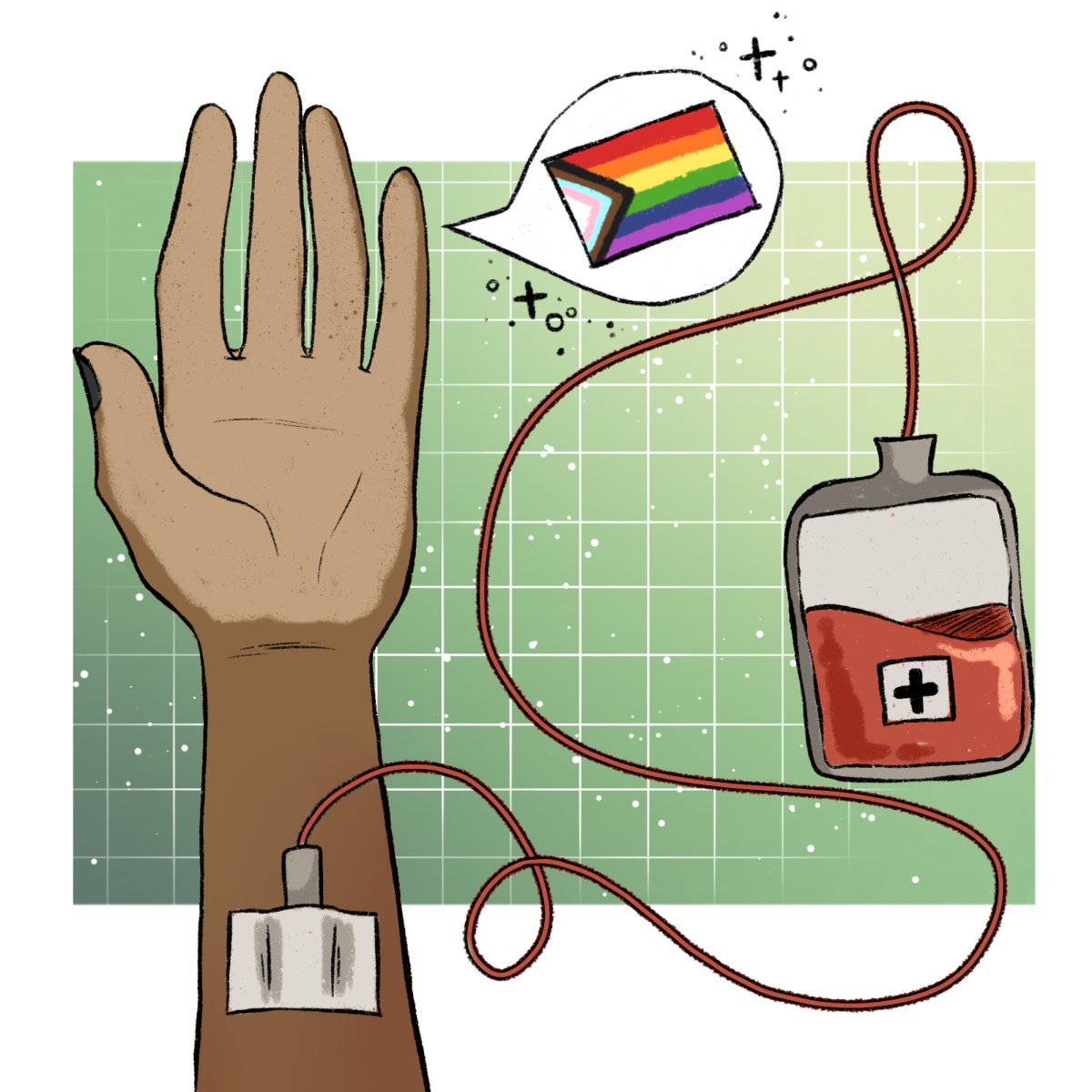Brandon Wollerson donated blood for the first time in high school before he realized he was gay. After a few years of donating, Wollerson came out and became an ineligible donor — until We Are Blood expanded their eligibility on Sept. 6, in accordance with new FDA guidelines.
“I have a unique experience of being a donor only to have the door closed in my face,” Wollerson said. “For the last 20-plus years, I’ve been watching as there’s been some small changes, but (I’m) very excited to donate again.”
In 1985, the FDA mandated deferrals, which delay donating blood from anyone, men or women, who have sex with gay men. Previously, those who wanted to donate had to abstain from these activities for at least three months, the shortest deferral period since the introduction of the regulation during the HIV/AIDS crisis.
New FDA guidance, released May 11, removes all considerations regarding an individual’s gender and the gender of their sexual partners, said Nick Canedo, We Are Blood vice president of community engagement, expanding eligibility to members of the LGBTQ+ community who were excluded for decades.
“Allowing people of queer identities to donate blood to help others is really important, especially because we’ve been in health crises that disproportionately affected us,” psychology junior Raissa Cady said. “(We) want to give back to help other people affected.”
Canedo said the new eligibility guidance includes questions about activities impacting the risk of HIV transmission and asked of every donor regardless of gender.
“We’re finally progressing (away from) the stigma that gay or queer men will carry those diseases regardless of what their sexual life is like,” choral music sophomore Ethan Montez said.
Central Texas is experiencing an all-time high need for blood donation, Canedo said, making the expansion of donor eligibility more important.
“Ever since May, We Are Blood has been working hard to formally implement that process,” Canedo said. “We wanted to make sure that when we did implement (the changes), that we were creating a welcoming, safe and inclusive environment for individuals of the LGBTQ community.”
Canedo said inclusive preparation included internal training and processing updates as well as working with LGBTQ+ community advocates to learn from their lived experiences and receive feedback on training and implementation.
“I enthusiastically donated last week,” Wollerson said. “I was there on Wednesday the sixth when they opened up their eligibility and had a great experience. … I learned that one donation — so one person, my blood — can save up to three lives.”
All blood donations still receive testing for infectious diseases, including HIV, Canedo said, and deferrals still exist for individuals taking prescribed HIV medications, including preventative ones. Interested donors with a deferral from prior guidelines can visit We Are Blood’s website to lift that deferral.
“The piece that’s important to me is thinking about generations of (primarily) gay men who have been excluded from the opportunity to give,” Wollerson said. “I don’t want to minimize how significant it is. It’s bringing in a whole new population to be able to participate in a public health need in a way that we haven’t been able to participate in (before).”














